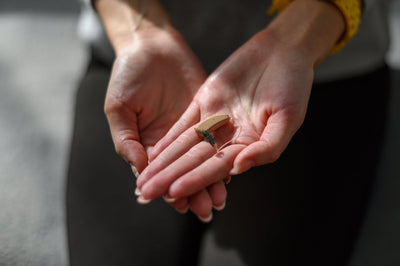Is Hearing Loss Associated With Old Age?
You probably already know this: as people get older, their hearing frequently deteriorates. The National Institute on Aging reports that one in three adults aged 65-74 has some level of hearing loss, and nearly half of those aged 75 and older have trouble with their hearing. Hearing loss is a prevalent problem among the elderly.
Sadly, research also confirms that hearing loss is often not adequately addressed.
1. You Should Not Put Off Addressing Your Hearing Loss Problem
Many people ignore their hearing loss or hope it will just go away. However, this is a perilous course of action, and it can lead to a host of problems.
For example:
Common hearing problems that often occur with age include:
- Tinnitus (ringing in the ear)
- A sense of fullness in the ear
- A sensation of pressure in the ears
If you ignore these symptoms and problems, they will likely get worse. If you ignore hearing loss, it can lead to other issues. Research suggests that early detection and treatment of hearing loss can help both patients and their families.
2. You Can Consider Other Options Other Than Hearing Aids
The world of hearing aids is changing. While age-related hearing loss is still treated primarily with hearing aids, there are other options. You can get hearing aids without the traditional earmolds. You can also get custom-made hearing aids that fit more comfortably and aid in comfort.
You can also consider another option: cochlear implants. These devices can aid the hard-of-hearing and give a sense of sound again. While they are not appropriate for everyone, many seniors can benefit from this type of device.
3. You Must Know How Age-Related Hearing Loss Causes Distortion of Sounds
Sometimes, people who are hard of hearing simply need to turn up the volume on the TV or radio. When it comes to age-related hearing loss, it's a bit more complicated than simply turning up the volume.
Age-related hearing loss often causes people to hear high-pitched sounds better than low-pitched sounds. They might hear a doorbell but not be able to hear the low rumble of an automobile. They also might not be able to hear the s sound and the sh or ch sounds, making it difficult to distinguish the words shoe and show.
The National Institute on Aging reports that at ages 65 and older, a person can hear high-pitched sounds 30 decibels better than they can low-pitched sounds. The institute states that at ages 75 and older, people can hear a low-pitched sound about 15 decibels better than a high-pitched sound.
4. You Mustn't Assume That Your Primary Care Doctor Will Notice Hearing Loss or Initiate an Evaluation
Here's where things get tricky. You may think your primary care physician should notice your hearing loss or that your primary care physician should initiate a hearing test.
Unfortunately, this is not always the case. You may need to bring up the subject of your hearing. You may also need to request a referral to an audiologist who can conduct a hearing test. If you have trouble hearing, don't wait for your doctor to address it.
Conclusion
Age-related hearing loss is a prevalent problem among the elderly. If you have trouble hearing, don't wait for your doctor to address it. Ask for a referral to an audiologist who can conduct a hearing test and provide you with hearing aids. If you are looking for help with your hearing loss, contact your local hearing care professional today.
At last, affordable and discreet hearing aids are now available. Here at HearGlow, we aim to make hearing aids more accessible for the many millions around the world who are losing their hearing. We have come on the scene to help reduce those costs, by making hearing devices more affordable & accessible for the many millions around the world who are losing their hearing. If you need hearing aid accessories in Oregon, we’ve got you covered! Check what we have to offer!
Related Articles



